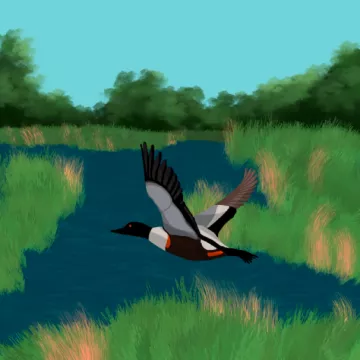
It’s a new year and the Water and Wetlands Stewards are looking forward to a busy year devoted to learning and action. The team invites all Deeper Dive readers to join us in our efforts to ensure a future with clean water and a healthy environment. With your help we can get it done!
Here’s the team’s list of priority issues, along with a short description of what is to be done. Your participation and ideas will drive what actually happens. For more information about these issues and how you can be involved, contact Steve Ring.
Salt Use Reduction Draft legislation for appropriate road salt use; promote certification and training.
Microplastics Develop legislation, research, and learn. Possible tasks include developing a standard method for measurement, increasing public awareness and involvement in plastic pollution issues, and researching what can be done to remove microplastics from wastewater.
Wake Boats Learn about the impacts of wake boats on aquatic environments and draft a legislative proposal for their appropriate use. Monitor boating industry legislative initiatives, communicate through blogs and articles; and share information with other groups.
PFAS (Forever Chemicals) Follow the efforts of the Minnesota Center for Environmental Advocacy (MCEA) to recognize the significance of these dangerous chemicals; promote monitoring, testing, and adequate standards.
Mining Impacts Understand and prevent unsafe and environmentally deleterious mining practices. This could include promoting 100% recycling of electronic waste for its metal content.
Aquifer Protection Prevent well and aquifer depletion and pollution, especially from nitrates and pesticides.
Trash, HERC, Incineration and Water Quality
Research the implications of trash burning and other trash handling activities. Are water quality standards for trash and appropriate regulatory legislation possible?
DNR Reform Research restricting the activities of the Minnesota Department of Natural Resources to resource protection, enjoyment, and education, and eliminate its involvement in resource extraction and logging.
Questions? Contact team chair, Steve Ring.